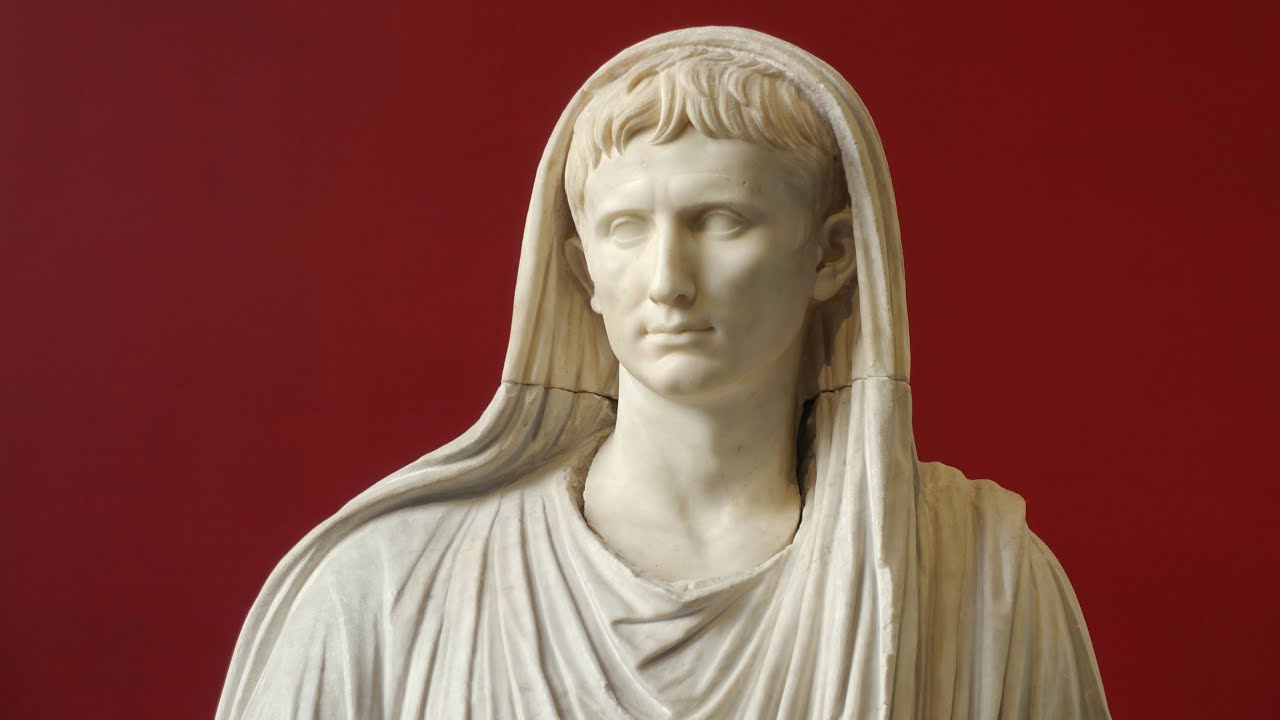AFRODITE
Summary
TLDRThis video script delves into the mystical art of ancient Rome, focusing on the 'Aphrodite Nude' type, a popular subject in Roman art. It discusses the evolution of the Venus statue, its significance in Roman villas and gardens, and the numerous Roman copies that exist. The script highlights the 'Aphrodite of Capua' and the famous 'Venus de Milo,' an original Greek work from the Hellenistic period, known for its classical form and asymmetrical beauty. It also touches on the 'Venus Pudica' and the 'Winged Victory of Samothrace,' emphasizing the dynamic movement and realism in Hellenistic art. The script concludes with a look at genre scenes, showcasing the realistic depiction of everyday people in contrast to the idealized figures of earlier periods.
Takeaways
- 🎨 The script delves into the mystical art form, focusing on the 'Aphrodite nude' type, a subject known through numerous Roman copies.
- 🏛️ Statues of Venus were particularly popular for placement in Roman villas and gardens, leading to a high demand and many Roman replicas.
- 🗿 The 'Aphrodite nude' type was pioneered by Praxiteles, with variations created by different artists, often showing Venus standing with a long garment covering parts of her body.
- 🖼️ The 'Aphrodite of Capua' and the famous 'Venus de Milo' are examples of this type, with the latter being a particularly well-known and large marble sculpture from the Hellenistic period.
- 🏺 'Venus de Milo' is unique among these works as it is not a Roman copy but an original Greek sculpture, found by a farmer on the island of Milos and now housed in the Louvre.
- 🤔 Some scholars believe that 'Venus de Milo' may be overrated in terms of style compared to other lost originals, despite its fame.
- 🏛️ The script also discusses the 'Venus pudica' or 'Capitoline Venus', a Roman copy that, like the 'Venus de' Medici', was influential in the assimilation of classical art by later artists.
- 🎭 The influence of classical art, particularly Greek and Roman, is evident in the works of medieval and Renaissance artists, who often referenced and reinterpreted classical poses and themes.
- 🗿 'Nike of Samothrace', a masterpiece from the Rhodian school, is highlighted as an example of the dynamic and expressive art of the Hellenistic period, originally placed on a ship's prow and now in the Louvre.
- 👵 The Hellenistic period also saw the rise of genre scenes, depicting everyday people in realistic, non-idealized situations, such as the 'Drunken Old Woman' and 'The Resting Boxer', showcasing a new approach to realism in art.
Q & A
What is the main theme of the lecture in the transcript?
-The lecture focuses on the representation of Aphrodite (Venus) in ancient art, particularly the various types of nude Aphrodite sculptures and their significance in Roman and Greek culture.
What is the significance of the Roman copies of Aphrodite statues?
-Roman copies of Aphrodite statues were extremely popular and often placed in Roman villas and gardens, symbolizing beauty and classical ideals. The abundance of these copies highlights their cultural importance and demand.
Who created the first type of nude Aphrodite sculpture, and what was its significance?
-The first type of nude Aphrodite sculpture was created by Praxiteles. This marked a significant moment in art, as it introduced a new way of depicting the goddess in a more natural and sensual manner.
What are some key characteristics of the Aphrodite of Capua?
-The Aphrodite of Capua is depicted standing with a long drape that covers parts of her body, highlighting a balance between modesty and sensuality. In some versions, she is holding a mirror or shield.
Why is the Venus de Milo considered an important artwork?
-The Venus de Milo is a Hellenistic sculpture from the 2nd century BCE, notable for its classical style, large size, and the fact that it is an original Greek piece rather than a Roman copy. It has gained fame as a symbol of classical beauty.
How was the Venus de Milo rediscovered and brought to the Louvre?
-The Venus de Milo was discovered by a farmer on the island of Milos and was later acquired by the French, eventually being displayed at the Louvre after a campaign promoting its significance following the return of the Medici Venus to Italy.
What is the Venus Pudica pose, and where can it be seen?
-The Venus Pudica pose shows Aphrodite covering parts of her body with her hands in a modest gesture. This pose can be seen in the Venus Capitolina and was influential in classical and later Renaissance art, including works by Masaccio and Botticelli.
What is the significance of the Winged Victory of Samothrace?
-The Winged Victory of Samothrace is a monumental Hellenistic statue representing the goddess Nike, or Victory, placed on the prow of a ship. Its dynamic composition, detailed drapery, and positioning make it a masterpiece of movement and realism.
What is the style and symbolism of the Winged Victory of Samothrace?
-The statue symbolizes victory, with Nike standing on a ship’s prow, her clothes clinging to her body in the wind. It exemplifies the dramatic movement and realism typical of Hellenistic art, celebrating triumph in naval battles.
What does the transcript mention about Hellenistic genre scenes and their importance?
-Hellenistic genre scenes depicted realistic, often everyday subjects, such as common people in moments of life. Examples like the 'Old Drunk Woman' and 'Resting Boxer' show a focus on realism and detailed observation of human conditions, which was a new approach in art at the time.
Outlines

هذا القسم متوفر فقط للمشتركين. يرجى الترقية للوصول إلى هذه الميزة.
قم بالترقية الآنMindmap

هذا القسم متوفر فقط للمشتركين. يرجى الترقية للوصول إلى هذه الميزة.
قم بالترقية الآنKeywords

هذا القسم متوفر فقط للمشتركين. يرجى الترقية للوصول إلى هذه الميزة.
قم بالترقية الآنHighlights

هذا القسم متوفر فقط للمشتركين. يرجى الترقية للوصول إلى هذه الميزة.
قم بالترقية الآنTranscripts

هذا القسم متوفر فقط للمشتركين. يرجى الترقية للوصول إلى هذه الميزة.
قم بالترقية الآن5.0 / 5 (0 votes)






